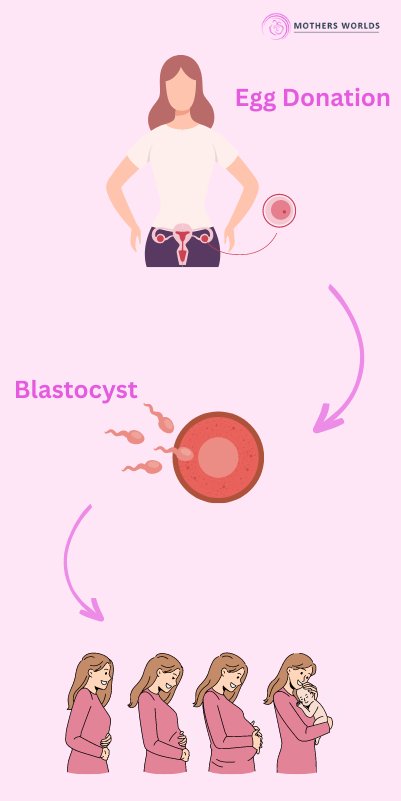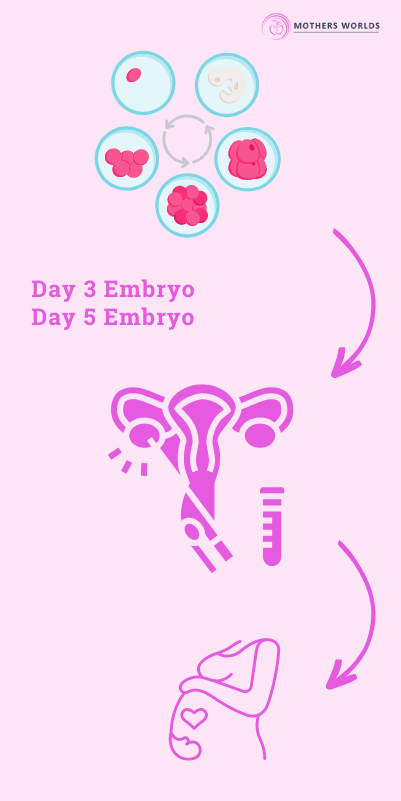Donor Programme
The donor program is a way to serve those people who can’t use their sperm or eggs for anatomical, personal, or other reasons. Because she uses someone else’s egg to become pregnant, the expected mother will be genetically unrelated to the child. If the father uses his sperm instead of the donor’s, he will be directly linked to the child. In some cases, a gestational carrier is required to carry the embryo or fertilized egg until the time of childbirth in order to carry the entire pregnancy.
Indications for the Donor Programme :
Patients with the following medical problems are eligible for the IVF donor programme.
Cancer patients -
After cancer treatment, if the ovaries are not properly functioning and are removed, the donor program proves to be helpful for these women.
Uncommon Fertility related issues-
It is also suggested that repeated failures of IVF treatment are idiopathic or due to poor ovarian response, which can be due to congenital abnormalities such as a female born without ovaries, or in cases of early menopause (before 40) or premature ovarian failure.
Infertility problems in females -
The donor program is recommended for older women with fertility issues, a lack of fertility and ovarian insufficiency, or diminished ovarian function in younger women. It allows infertile women to carry a child despite previous IVF failures, premature ovarian failure, diminished ovarian reserve, and other fertility problems. They may consider using a donor egg or donor embryos in such cases.
Single parents and people with genetic disorders:
The donor program is beneficial for single males or females (single parents) and couples with a history of rare genetic disorders in their families. Such parents can seek the assistance of a donor egg or sperm to prevent any genetically transmitted disease from passing from them to their child.
Donation in fertility treatment is used by couples who fail to achieve pregnancy through IVF. The process is effectuated with third party reproduction. Donor Program has helped many couple to complete the family with their biological child. The need of donor changes with the nature of fertility issue and infertile partner.
Egg Donation
Egg donation is meant for those couples who suffer through different type of physical issue like PCOS and cysts, multiple failure of IVF and IUI, Menopausal women, endometriosis, or women with genetic disorder.
Who can go for egg donation?
•Female partner facing PCOS or cyst
•Multiple failure of IVF and IUI
•Low quality egg due to aging
•Genetic Disorder
Sperm Donation
Sperm donation is done by a man who is not the recipient’s partner. Sperm is either implanted into female body by IUI process or outside the body in the lab by IVF process. This process is generally used by a male partner who is suffering from abnormalities
•Obstruction – The ejaculatory duct blocks, which does not allow sperm to pass through prostate and into the urethra.
•Testicular Failure- Inability to produce sperm or male hormones, typically testosterone.
•Absence of Sperm- This problem is also known as azoospermia when men semen contains no sperm in it.
•Sperm Abnormalities- Reduced sperm count is one of the common abnormalities seen in men. This causes mainly due to Sexually transmitted infections, Stress, Obesity, using toxic chemicals etc.
Embryo Donation
Embryo Donation is a process in which Fertilised embryo from IVF procedure is transferred into the uterus of infertile female partner. There is possibility that more than one embryo is produced by IVF process which is frozen and could be used for donation. The Donation is carried out with consent of both couples and according to the protocols.





